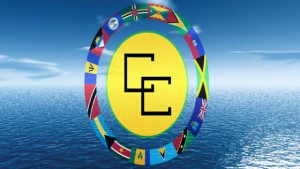 BRIDGETOWN, Barbados (CMC) — Secretary General of the Caribbean Community (Caricom) Ambassador Irwin LaRocque says the strength of the regional integration movement provides a solid platform on which Caricom member states can build resilience within a global environment that is constantly in flux.LaRocque made the statement here on Thursday when he addressed the opening of the 20th Meeting of the Council for Foreign and Community Relations (COFCOR).
BRIDGETOWN, Barbados (CMC) — Secretary General of the Caribbean Community (Caricom) Ambassador Irwin LaRocque says the strength of the regional integration movement provides a solid platform on which Caricom member states can build resilience within a global environment that is constantly in flux.LaRocque made the statement here on Thursday when he addressed the opening of the 20th Meeting of the Council for Foreign and Community Relations (COFCOR).
According to LaRocque, COFCOR is meeting at a time when international order was in greater flux than usual.
“Globalisation and multilateralism, characterised by open borders, the institutionalisation of economic and political cooperation, and shared sovereignty are unravelling, increasingly challenged by the rise of populism, protectionism and isolationism,” the Caricom Secretary-General told the gathering of the region’s foreign ministers.
He noted that some international developments have had far-reaching implications for the Community’s well-being — highlighting the commencement of the Brexit process and a new US administration whose policy positions towards the region were not yet clear.
He said the uncertainty that potential policy reversals in the US brought to a number of critical global issues was also crucial to Caricom.
Concerning Brexit, he said involved parties are among the region’s major trading and development partners, making it important for the Community to maintain strong relationships with both.
Imminent negotiations on the post-Cotonou arrangements which would define the future relationship between the ACP (African Caribbean and Pacific) Group of countries and the EU, the discussion on the revitalisation of the ACP itself, a construct which had been useful in bringing three regions together in common cause; and the ever-present existential threat of climate change were among the other issues he highlighted that had far-reaching implications for Caricom.
The Secretary-General said Caricom was adapting to change and building the resilience, even as it sought new opportunities for advancement and a strengthened Community.
“The Caribbean Community has a complex and formidable task at hand. With change comes uncertainty, but also the potential for opportunities. I believe, as I have said in another forum, that “the strength of our integration movement gives us a solid platform upon which to build our resilience,” LaRocque said.
He noted that Caricom had been pursuing engagements with third countries to address the issues, including graduation from access to concessional development financing, with some success; engaging relevant authorities in foreign capitals to address the withdrawal of correspondent banking services; and confronting, in an aggressive manner, those nations that persist in labelling some Caricom Member States as non-cooperative tax jurisdictions.
“The unilateral blacklisting of our Member States by countries who we think of as our traditional friends is unwarranted, unhelpful and indeed harmful to our economies,” LaRocque stated.
However, he noted that the Community had begun to see the value of acting in concert. That has become evident as the Community prepares for the upcoming, high-level UN conference on oceans, on the conservation and sustainable use of marine resources, to be held in New York June 5-9, 2017.
“The Community has brought together the negotiating skills of its Permanent Representatives to the UN, the guidance of their capitals, and the inputs of technical experts from UWI and Caricom specialised institutions to maximise the effectiveness of our participation,” the Caricom Secretary General said,
The meeting was chaired by Maxine McClean, minister of foreign affairs and foreign trade of Barbados who is also the incoming chairman of COFCOR.
“It is imperative that we deepen and strengthen community engagement and, as a cohesive body, leverage our voices as one to derive maximum benefit for the region,” she said, while adding that recent political developments in the hemisphere and Europe involving long-term Caricom partners would likely have “a profound impact” on the region.
The foreign minister said the region must devise a clear policy on how they will engage with the EU following the exit of the United Kingdom, as well as the Africa Caribbean Pacific-European Union relationship after the Cotonou Agreement expires in 2020.
She also highlighted the issue of climate change, which she stressed was a “priority issue” for Caricom.
